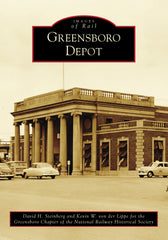Publishing Today
Happy book birthdays to these beauties.
The History Press
Japanese in Wyoming by Daniel Lyon
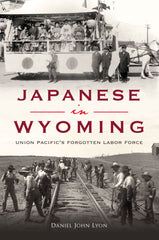
Long before Heart Mountain Internment Camp brought Japanese prisoners to Wyoming, an immigrant work force put down lasting roots. Beginning in 1892, Japanese came to toil on Union Pacific's railroad and coal mines. But they weren't warmly welcomed. Newspapers charged every Japanese section worker was secret Japanese Army. Allegedly, "600 Japs in Utah, [and] about 400 in Wyoming and probably 100 in Colorado," were ready to serve Japan during the Japanese Russo War. George Wakimoto said the number was closer to six. Such misinformation about Japanese laborers spawned violence against Asians. The citizens of Evanston tried to blow them up. Rawlins ran the Japanese out of town. And in Laramie, young boys threw stones and dragged a Japanese man through the street. Author Dan Lyon chronicles Japanese perseverance, before and after both world wars, in their adopted state.
Legends and Lore in Southwest Virginia by Melody Blackwell-West
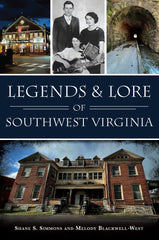
Explore the traditional tales of the hills and hollers of southwestern Virginia. From the infamous Black Sisters of Christiansburg to the ghost of the famed Barter Theatre in Abingdon, the region is filled with stories that have haunted residents for decades. The Woodbooger, a local Bigfoot, is said to roam the mountainsides which are also home to many eccentric and inspiring legendary characters, including Molly Tynes, Reverend Robert Sheffey, Napoleon Hill and Cedar Creek Charlie. Authors Melody West and Shane Simmons uncover tales of unique people and places that have seldom been told.
Life and Times of the Falls Church News-Press by Charlie Clark
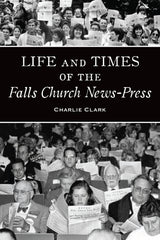
A Culinary History of Mobile by Christopher A. Andrews

From its founding in 1702 by the French, Mobile has had a lot on its plate. Indeed, the story of food itself is a rich gumbo--a dish created in Mobile--tracing the city's rich history, albeit in far more filling fashion. Native, European and African traditions met and blended here. From the colonial days through the Civil War and up to the present, this history serves up a full menu for foodies and history buffs alike.
Hidden History of Howard County by Nathan Davis and Wayne Davis
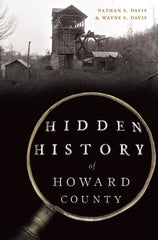
First settled in the 17th century when the area was part of Anne Arundel County, early towns formed around grist mills. Nearby quarries and mills shaped Ellicott City before the more well-known impact of the B&O Railroad in the 1830s. Cotton mills flourished, and mill towns like Savage grew. In the 20th century Savage briefly became the Christmas capital of the country. It was also a well-known sundown town. Historically Black communities dealt with battles over education as the state emerged from segregation. Development brought suburban neighborhoods and change to rural areas, and planned communities like Columbia affected Guilford and other surrounding towns. Local authors Nathan Davis and Wayne Davis explore local myths and uncover erased histories.
Notorious Memphis Gangster Diggs Nolen by Mr. Patrick O'Daniel
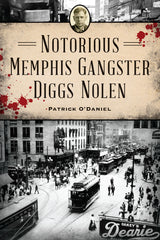
Diggs Nolen's name was the byword for crime in 1920s Memphis. As a child, he dreamed of becoming a swashbuckling outlaw. He turned his back on a promising career, his family and consorted with the worst elements of society. Under the tutelage of train robber Frank Holloway, Nolen became a notorious con artist. Later, he and his gun-slinging wife built an empire out of selling narcotics and trafficking stolen goods. Law enforcement caught Nolen, but they could not hold him. Nolen escaped from Leavenworth Prison, led the largest jailbreak in Memphis history and confounded prosecutors with legal wranglings. Author Patrick O'Daniel details Nolen's quixotic quest for criminal fame that earned him the title King of the Memphis Underworld.
Growing up Yinzer by Dick Roberts

The city's undeniable impact on the character and life of those who grew up there has shaped iconic figures of American sports, entertainment and culture. Legends of the gridiron such as Jim Kelly, Tony Dorsett, Dan Marino and Joe Namath forged their football prowess in Western Pennsylvania. Business pioneers including Mark Cuban, Ray Werner and Bill Strickland were ingrained with the value of hard work in the Steel City. Music and movie stars like Jeff Goldblum, George Benson and Billy Gardell found creative inspiration in Pittsburgh that led to new heights. Author Dick Roberts presents profiles, interviews and memories from some of the most famous and adored Pittsburghers.
Arcadia Publishing
Kingsport: City of Industry by Brianne Wright
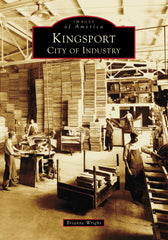
Dallas Love Field by Bruce A. Bleakley

Greensboro Depot by Kevin von der Lippe and David H. Steinberg
